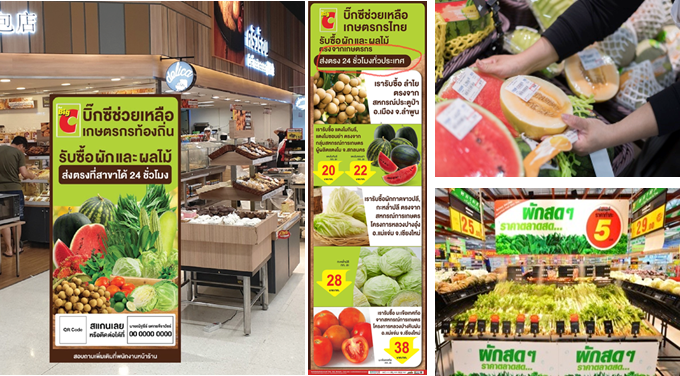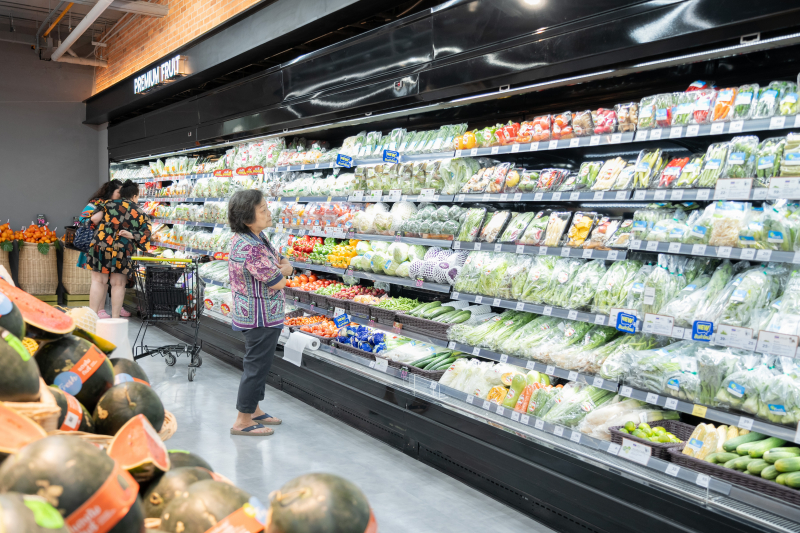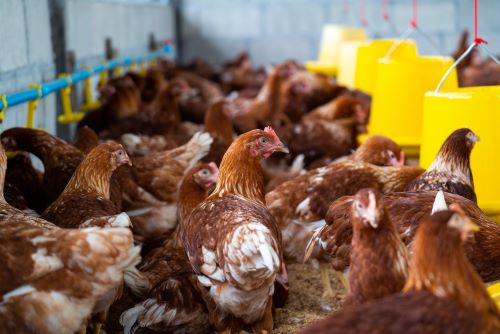
test

2 End hunger, achieve food security and improved nutrition and promote sustainable agriculture

goal 3

goal 4

goal 5

goal 6

goal 7

goal 8

goal 9

goal 10

goal 11

goal 12

goal 13

goal 14

goal 15

Goal 16
16.3: Promote the rules of law and the national and international levels and ensure equal access to justice for all.
16.5: Substantially reduce corruption and bribery in all their forms
16.7 Ensure responsive, inclusive, participatory and representative decision-making at all levels
16.b: Promote and enforce non-discriminatory laws and policies for sustainable development

Goal 17

RESPONSIBLE RAW MATERIAL SOURCING
Influenced by the volatile market environment and continuously changing customer demands, companies must actively adapt their respective business operations, manufacturing practices and distributions strategy to efficiently replace and/or replenish inventories, to meet the current market products and service’s needs, enabling consumers to meet their respective daily needs. This is achieved through raw material sourcing, conducted in a responsible manner, which determines a company’s ability to control the quantity, quality and origin of raw materials, ensuring that raw materials sourced are grown, processed and transported with Environmental, Social and Environmental (ESG) considerations, minimizing negative environmental and social impacts throughout the value chain. This consideration extends to all raw materials sourced, including animal products, fruits and vegetables and raw materials. Furthermore, the need for responsible raw material sourcing is expected to intensify, as global biodiversity continues to be affected from climate change, as reported by the World Economic Forum, resulting in ecosystem degradation, effecting the quantity, quality, and availability of raw materials, driving up operational expenses and product and service prices.
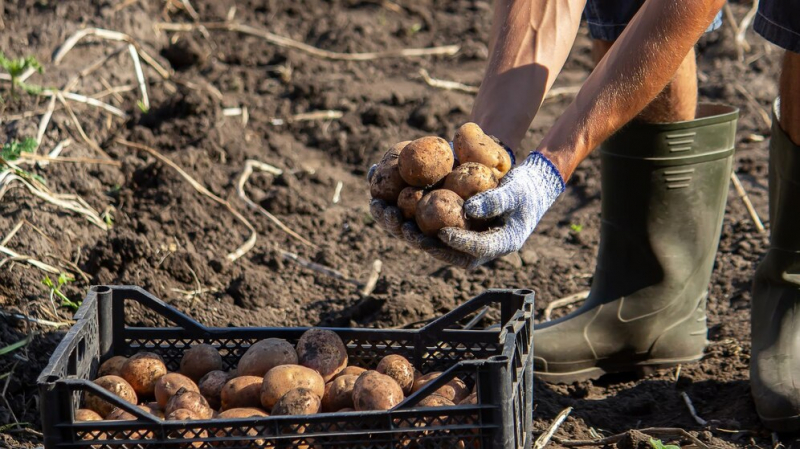
To integrate responsible raw material sourcing throughout the operations, BJC applies responsible raw material sourcing practice through emphasizing sustainable natural resource management. This is guided by the established corporate wide Sustainable Sourcing of Agricultural Raw Materials Policy, Animal Welfare Policy and GMO Policy, which clearly outline BJC’s approach and expectations to raw material sourcing. The policy states that BJC and its subsidiaries will reduce water consumption, reduce environmental pollutions, protect soil health, prevent the destruction of ecosystems and reduce GHG emissions, contributing to a sustainable operation. BJC also expects and encourages suppliers to act in line with this commitment.
Project: Reduction of Softwood Pulp Usage in Multi-purpose Tissue Products
BJC Cellox has initiated a project to reformulate its multi-purpose tissue products by reducing the proportion of softwood pulp (long fibers) while maintaining the required physical properties and quality standards.
Target :
- Reduce long fibers to 25%
The implementation involves machine adjustments, such as headbox slice and refiner settings, to enhance product strength and ensure consistent quality.
Results :
- Reduction of softwood pulp usage by 581 tons.
- Estimated reduction of 523.64 tons of CO₂e greenhouse gas emissions (based on 900 kg CO₂e per ton of pulp – Tomberlin et al., 2020).
This initiative reflects the company’s commitment to resource efficiency and environmental sustainability, in alignment with its long-term sustainability strategy.
Sustainable Agricultural Programs
| Programs to reduce water consumption | ||||||||||||||||||||||||||||||||||||
|
|
Farming Water Control by BJF
BJC recognizes the critical importance of effective water management, as water is essential for sustaining life and vital for business operations. Berli Jucker Food (BJF) continues to educate farmers in northern Thailand on appropriate water management to improve water efficiency through various initiatives. Since its implementation in 2018, BJF's farming water control approach has become one of its main water management projects. This initiative focuses on reducing water usage on farms, particularly during the potato growing process. By accurately determining the water needs at each stage of growth, the project minimizes water waste. Additionally, this water control method helps protect overall potato yields. Since potatoes have shallow roots and low tolerance for water stress, this approach reduces the risk of crop rot due to overwatering.
|
|
|
|||||||||||||||||||||||||||||||||
|
Smart Farming System
Big C supports farmers in incorporating technology into their agricultural businesses through the Big C Big Smart Local project. The objectives of this initiative are to: Enhances production efficiency: By optimizing resource utilization, the Smart Farming System enables farmers to increase their yield while maintaining resource consumption at sustainable levels. Streamlines labor utilization: The system addresses labor shortages by reducing reliance on manual labor. Promotes resource conservation: Through optimized irrigation and energy usage, the Smart Farming System helps manage electricity and water consumption effectively, aligning farming practices with principles of sustainable production and consumption. Enhances equipment longevity: By implementing predictive maintenance algorithms, the system minimizes equipment downtime and prolongs the lifespan of farming machinery.
|
|
|||||||||||||||||||||||||||||||||||
|
Crop rotation for reduced water consumption
In 2024, BJF supports crop rotation among farmers, encouraging the cultivation of corn or other crops suitable to local conditions during periods when potatoes cannot be grown. Crop rotation improves soil quality, increases agricultural yields, reduces the need for fertilizers and chemicals, and lowers the risk of crop diseases. It also enhances soil biodiversity and helps retain soil moisture, which contributes to reduced water consumption in farming activities. In addition, BJF promotes agroforestry to increase ecosystem resilience and maintain biodiversity, ensuring long-term sustainability of farming systems and the surrounding environment.
|
|
|||||||||||||||||||||||||||||||||||
| Program to reduce environmental pollution | ||||||||||||||||||||||||||||||||||||
|
|
Cooperative Farming System at BJF
Berli Jucker Food (BJF) continued to support and uplift farmers through various initiatives and knowledge sharing, such as supporting farmers to elevate farming practices beyond industrial expectations by complying with the Good Agricultural Practices (GAP) of the Department of Agriculture. Registered farmers' compliance is regularly monitored through annual audits by Department of Agriculture personnel, fostering a positive relationship between farmers and BJF while safeguarding product quality and safety. The GAP system remains an important tool for monitoring farming practices, including production yield, growth duration, product quality, and fertilizer use. Compliance with the system also encourages farmers to use organic fertilizers instead of chemical fertilizers.
|
|
||||||||||||||||||||||||||||||||||
|
Sustainable agriculture in Northern Thailand
Big C is making significant strides in promoting the production of organic products and avoiding the use of chemicals in agriculture, focusing on environmental protection across all nine northern provinces of Thailand. This initiative directly engages farmers from Mae Hong Son, Chiang Rai, Lamphun, Lampang, Phrae, Nan, Phayao, and Uttaradit. The project is centered on educating farmers about sustainable farming practices that minimize chemical inputs. Big C provides comprehensive training sessions to farmers, emphasizing alternative methods and organic farming principles whenever feasible. A crucial aspect of the initiative involves strict monitoring and control of chemical residues in crops. Farmers are trained to conduct regular checks for residues before harvesting to ensure that produce entering the market is free from harmful chemicals.This meticulous approach not only enhances food safety but also reduces environmental pollution from chemical fertilizer use.
|
|
|||||||||||||||||||||||||||||||||||
| Programs to protect soil health | ||||||||||||||||||||||||||||||||||||
|
|
Organic fertilizers
Emerging from the Remote School initiative, Rong Reaun Fun Nam Nom embodies a captivating story of sustainability and community empowerment. This program imparts knowledge on compost fertilizer production to schools in Chiang Mai province. In 2024, this program has participants from over 30 schools and more than 4,000 students and benefits from this endeavor at the Northern Agricultural Product Center in Chiang Mai. The compost fertilizer is used in school gardens to improve soil health and reduce the reliance on chemical fertilizers. By adopting these practices, the initiative helps protect soil health, ensuring it remains fertile and resilient. This sustainable approach prevents soil degradation, supports biodiversity, and promotes healthier plant growth, fostering a more sustainable environment for future generations.
|
|
||||||||||||||||||||||||||||||||||
|
Crop rotation in a potato farm
In 2023, Berli Jucker Food (BJF) promoted crop rotation practices in potato farms across 4,712 Rai in Chiang Mai, Chiang Rai, and Phayao provinces to help maintain and prevent the deterioration of soil health. In 2024, BJF expanded the initiative by increasing the total farming area to over 13.9 million square meters (8,654 Rai) and extended the program to include two additional provinces, Lamphun and Tak. This expansion reflects BJF’s continued commitment to sustainable agriculture and improved soil management.
Deforestation-free agricultural areas verification
Berli Jucker Food (BJF) has designated field officers to promote potato cultivation in suitable areas, ensuring that there is no deforestation. These officers conduct thorough inspections, including Thai government documents such as reviewing title deeds (N.S.4) and Certificates of Utilization (NS-3), or a document authorizing land utilization issued by a relevant government agency, which certifies that the owner has occupied the land and put it to good use, before approving cultivation on the designated 13.9 million sq. m. (8,654 Rai) of farmland in Chiang Rai, Phayao, Lamphun, and Tak in 2024. This represents an expansion from 4,627 rai in 2023, reflecting BJF’s continued commitment to supporting sustainable agriculture.
|
|
|||||||||||||||||||||||||||||||||||
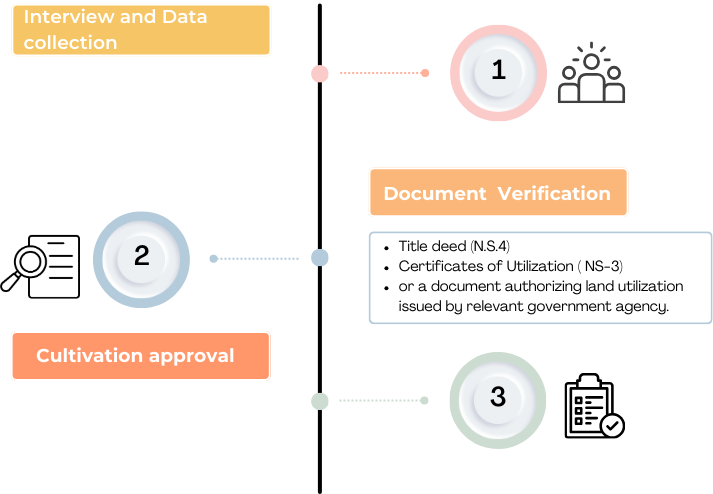 |
||||||||||||||||||||||||||||||||||||
|
BJF Sustainable Agriculture Initiative
In 2024, BJF advanced agricultural sustainability by training 579 farmers in Phayao and Chiang Rai on precise soil nutrient management, matching the supply of soil nutrients with nutrient demands of crops, fodder, and pasture plants. This approach reduced chemical fertilizer use by 160.45 tons and improved soil structure and long-term fertility while ensuring consistent crop quality. Additionally, advanced water management practices across 4,188 rai reduced water consumption by 1.11 million cubic meters, reinforcing BJF’s commitment to resource efficiency, environmental responsibility, and resilient farming systems.
|
|
|||||||||||||||||||||||||||||||||||
| Programs to prevent the destruction of ecosystems | ||||||||||||||||||||||||||||||||||||
|
|
BJC has long recognized the important role of biodiversity in supporting the overall health and resilience of ecosystems. In 2024, the company enhanced its Standard Operating Procedure for Biodiversity Management, providing a guideline for all business units to proactively secure biodiversity and identify opportunities to strengthen BJC’s long-term competitiveness. This approach is implemented through a range of initiatives aimed at minimizing negative impacts on biodiversity across the entire value chain, while creating a net positive contribution to nature.
Biodiversity assessment
BJC evaluates the biodiversity effect of all BJC factories in Thailand. In addition, BJC intends to examine biodiversity effect with essential suppliers, particularly agricultural suppliers, in order to develop an action plan for managing biodiversity impact from the business operation.
|
|
||||||||||||||||||||||||||||||||||
|
Construction of Check Dam
BJC Big C places great importance on maintaining the balance of ecosystems, soil moisture, and nutrients, while also helping to prevent soil erosion. Since 2022, the company has been constructing irrigation dams in various areas of Northern Thailand to secure water resources for agricultural areas that produce key products and ingredients, including potatoes, a major raw material for Tasto brand potato chips, and other fresh foods directly sourced from local farmers and sold in Big C supermarkets. Northern Thailand is an important region for farmers participating in projects in collaboration with BJC’s business operations including, BJF and Big C.
In 2024, BJC Big C, in collaboration with the Department of National Parks, Wildlife and Plant Conservation and the Northern Region Industrial Estate, organized a water retention weir construction activity under the Sustainable Green Area Development Project at Mae Ta Khrai National Park Protection Unit 5 (Ang Mae Tip), Ma Kuea Chae Subdistrict, Mueang District, Lamphun Province.
|
The construction of the water retention weir in this project is a joint effort among the government, private sector, and local communities to restore and conserve watershed forests, increase soil moisture, and prevent the destruction of ecosystems. In the past, the Mae Ta Khrai National Park area experienced over 200 forest fires, causing damage to more than 1,000 rai of forest land. This initiative aims to protect the forest, maintain biodiversity, and promote sustainable environmental management for future generations. |
|||||||||||||||||||||||||||||||||||
|
Sustainable raw material sourcing
BJC purchases agricultural products certified as sustainable raw materials, such as those from the Roundtable on Sustainable Palm Oil (RSPO), which promotes environmentally responsible and socially beneficial palm oil production. The Rainforest Alliance supports agricultural practices that protect biodiversity, conserve natural resources, and improve farmer livelihoods. Fairtrade ensures fair prices for producers, ethical labor conditions, and long-term community development. In addition, certifications that ensure deforestation-free production further strengthen responsible sourcing practices. Together, these certifications cover a range of key agricultural commodities, reflecting BJC’s commitment to sourcing raw materials that meet high environmental, social, and ethical standards and contribute to a sustainable, responsible supply chain.
|
|
|||||||||||||||||||||||||||||||||||
| Programs to reduce GHG emissions | ||||||||||||||||||||||||||||||||||||
|
|
Crop Residue Management Initiative
In 2024, BJF continued to support and uplift farmers through various initiatives and knowledge sharing, such as improving crop residue management. Farmers are encouraged to manage their crop residues by plowing instead of burning. Burning crop residues eliminates the opportunity to improve organic matter content and can potentially lead to substantial nutrient loss. |
|
||||||||||||||||||||||||||||||||||
|
Support Program for SME (Small and Medium-sized Enterprise)
In 2024, Big C has continued its support for and participation in the SME Business Matching program since 2023, working alongside government agencies to promote the growth and sales of Thai SMEs, OTOP enterprises, and Thai agricultural products. This program aligns customer needs across regions with locally available products for in-store sales, enhancing local product offerings in retail and helping ensure that consumers have access to fresh, high-quality items while also reducing GHG emissions through shorter transportation distances.
|
|
|
||||||||||||||||||||||||||||||||||
|
Support Thai SMEs and Farmers
BJC recognizes the pivotal role of Thai farmers in the nation’s food security and economic development. Resource limitations and market fluctuations continue to hamper their sustainability and economic well-being. BJC is steadfast in supporting Thai farmers through initiatives promoting sustainable agricultural practices, expanding market access, and fostering community resilience. In 2024, Big C intensified its commitment to empowering local SMEs and farmers by directly procuring top-quality, locally sourced products while launching a pumpkin cultivation program in the marginalized communities of Fang district, Chiang Mai province. Building on its 2022 achievements, BJC expanded its direct procurement program to purchase 5,000 tons of 80 Thai fruits and vegetables directly from farmers, providing stable income. This initiative not only ensures freshness and quality for customers but also contributes to rural economic prosperity and reduced transport distances through local product offerings in retail, lowering logistics emissions and strengthening local value chains.
|
|
|||||||||||||||||||||||||||||||||||
|
Jak Doi Su Mueang at Big C
The Royal Project Products Festival "Jak Doi Su Mueang" at Big C Year 2, 2024, supports organic products and farmers under the Royal Project Foundation. The products sold are organic, high-quality, and fresh. Big C serves as a distribution channel for these quality products from the Royal Project through its branches nationwide and online channels, helping to create sustainable income for over 12,000 highland Thai farmers. It also allows Big C customers to access fresh, clean, and safe vegetables and fruits, just like buying directly from the mountain farms. This event is held at Big C Rama 4. Since 2023, Big C is committed to promoting highland agricultural products through environmentally friendly production and post-harvest processes, ensuring consumers receive high-quality produce. By supporting organic and sustainable farming, the festival also helps reduce greenhouse gas (GHG) emissions by minimizing synthetic inputs and promoting practices that capture carbon and lower the overall carbon footprint.
|
|
|
||||||||||||||||||||||||||||||||||
|
Reducing dependence on imported long-fiber pulp
Berli Jucker Cellox (CPC) enhanced sustainability by increasing the use of short-fiber pulp from domestic suppliers and reducing long-fiber (softwood) pulp in multi-purpose tissue products to 25%. Through precise machinery adjustments, CPC maintained product strength and quality while reducing softwood pulp use by 581 tons in 2024, equivalent to 523.64 tons of CO₂ emissions avoided. The shift also shortened transportation distances by relying on local suppliers and reduced transport distances through local products, cutting fuel use and logistics emissions. These actions strengthened supply chain resilience, supported the local economy, and advanced CPC’s commitment to resource efficiency and environmental sustainability.
|
|
|||||||||||||||||||||||||||||||||||
| Other Programs | ||||||||||||||||||||||||||||||||||||
|
The Palm Pulp and Paper Project converts agricultural byproducts (palm empty fruit bunches)
In 2024, Berli Jucker Cellox (CPC) implemented the Palm Pulp and Paper Project, which converts agricultural byproducts (palm empty fruit bunches) into unbleached brown paper products, such as Brown Napkin and ITF Towel Brown, now available in Factory Outlet stores. This innovation reduces dependence on wood pulp, eliminates the need for bleaching chemicals, and promotes the use of renewable resources. The project generated sales of 2.3 million baht in 2023. Aligned with BJC’s Sustainable Raw Material Sourcing Policy, the project supports global sustainable development priorities by encouraging responsible consumption and production, reducing carbon emissions, and helping conserve forests and biodiversity. It also creates social value by generating new economic opportunities for agricultural communities.
|
|
|||||||||||||||||||||||||||||||||||
| For more information ► BJC Sustainability Report 2024 | ||||||||||||||||||||||||||||||||||||
Local Spending
Local suppliers refers to a supplier or service provider whose products or service offered are procured and/or sourced from raw materials available from surrounding areas.
Significant Location of Operations refers to suppliers with the majority of their business operations within Thailand.
| Performance | Unit | 2021 | 2022 | 2023 | 2024 |
|
Total Procurement Spending |
Baht |
123,342,954,911 |
126,636,213,370 |
131,117,202,491 |
133,836,140,284 |
|
Spending on purchasing of products and services from local suppliers and contractors for significant operations (i.e. In Thailand) |
Baht |
115,543,666,329 |
117,434,274,598 |
121,204,515,902 |
125,357,136,402 |
|
Percent of spending from local supplier comparing to the total general procurement budget |
Percentage (%) |
94 |
93 |
89 |
94 |
Promoting Sustainability Through Certified Products
In 2024, BJC continued to advance its sustainable sourcing agenda by embedding sustainability certification requirements into its procurement processes. This strategic focus was reflected in tangible outcomes, including increased alignment with recognized certification standards and greater traceability across both agricultural crop and animal product supply chains. These efforts underscored the company’s commitment to responsible sourcing practices and contributed to strengthening its sustainability performance throughout the year.
| Agricultural Priduct | Certification of Agricultural Crops | % of Certified Products Purchased | % Exposure of Agricultural Product in Total Purchasing |
| Palm Oil | Roundtable on Sustainable Palm Oil (RSPO) | 71.88 | 2.52 |
| Soy | Roundtable on Responsible Soy (RTRS) | 15.48 | 1.56 |
| Sugar | BonSucro | 68.06 | 0.84 |
| Cacao | Fairtrade and Rainforest Alliance incl | 95.86 | 0.01 |
| Coffee | Fairtrade | 16.88 | 0.17 |
| Cereals | FSA Gold | 59.38 | 0.05 |
| Cotton | Global Organic Textile Standards, Better Cotton Standard and Fairtrade | 67.94 | 2.83 |
| Tobacco | Sustainable Tobacco Programme (STP) | 29.32 | 3.95 |
The raw materials used in the production of our own-brand snacks, including palm oil, sugar, and cacao, are certified by leading sustainability standards such as RSPO, Bonsucro, Fairtrade, and Rainforest Alliance. These certifications apply to our brands Tasto, Party, and Campus, ensuring responsible sourcing across the entire supply chain.
| Animal Product | Certification of Agricultural Crops | % of Certified Products Purchased | % Exposure of Animal Product in Total Purchasing |
| Aquaculture products | Aquaculture Stewardship Council (ASC) | 57.69 | 0.24 |
| Cattle products (excl. dairy): | AAWCS (Australia), Certified Humane | 1.69 | 0.85 |
| Dairy products | Fairtrade | 2.19 | 1.69 |
| Swine products | AAWCS (Australia), RSPCA Assured, Global Animal Partnership (G.A.P) | 94.47 | 9.36 |
| Poultry products | Fairtrade, Global Animal Partnership (G.A.P) | 82.09 | 0.67 |
| Wild fisheries products | Marine Stewardship Council (MSC), MSC Chain of Custody | 72.20 | 0.21 |
Animal Welfare
|
|
|
 |
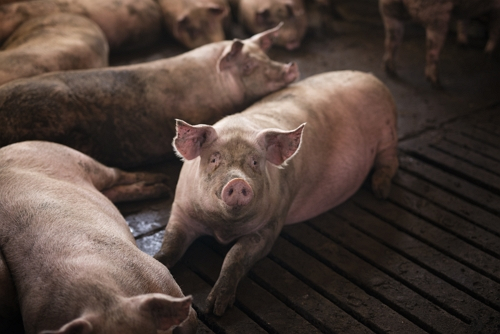 |
BJC has committed to engage in responsible raw material sourcing practices to conserve the well-being and availability of resources for future generations, while minimizing negative impacts on the economy, societal and environmental factors. One of the implemented approaches is the commitment to protect and elevate animal welfare throughout the value chain, paralleled with upholding stakeholder benefits and business competitiveness. Guided by the BJC Animal Welfare Policy, BJC encourages the humane treatment of animals across the supply chain, throughout the animal’s life cycle. The policy covers;
1. Cooperating with business partners, farmers, and livestock producers to ensure that suppliers adopt the practical and commercially viable standards of farm animal welfare, including pets and other live animals which cover breeding, growing, transporting and slaughtering (if relevant). The animal welfare is based on the 5 freedoms as follows;

2. Supporting business partners, farmers, and livestock producers to be responsible for using antibiotics, as well as minimizing the application of antibiotics on animals’ health and welfare.
3. Not using products or raw materials from animals that pose a risk to moral principles, affect animal welfare, or create negative impact to consumers’ health such as genetic modification, animal cloning and the use of chemical substances to accelerate animal growth. This is applied to all Big C brands.
4. Supporting cage-free animal husbandry with enough living space, especially, chicken livestock that produces chicken products and eggs, for all Big C brands.
5. For distributing BJC’s animal food and equipment, the standards and safety must be applied in accordance with relevant laws, rules and regulations.
6. BJC does not distribute any products that contain raw materials from reserved wildlife and does not support activities that affect animal health and welfare.
Animal Welfare Disclose
BJC Group places importance on animal welfare, which is directly related to the quality and safety of food, and encourages the humane treatment of animals throughout the supply chain and across all stages of the animal life cycle. The company has undertaken various activities and business operations that reflect its commitment to animal welfare, including the following:
- BJC does not sell product from illegal antibiotic-treated animal. BJC also expects all suppliers to use antibiotic at minimum or only when needed.
- BJC does not sell product from genetically modified animal or cloned animal. BJC also requests all suppliers not to sell GMOs product to BJC.
- BJC does not sell any product that contains illegal growth-promoting substance.
- BJC does not own animal production or operation. BJC also conducts onsite audit at the operation site of critical suppliers of fresh food products.
- BJC supports and put an effort to increase sales volume of cage-free eggs.
- BJC collaborates with The Department of Livestock Development to obtain the certification of “Pasusut OK” (The Department of Livestock Development certifies the stores that sell hygienic meat as well as products from the farms that have Good Agricultural Practices certification).
BJC has a process for auditing suppliers’ farms. Agreements with suppliers clearly specify that they must comply with relevant animal welfare laws and refrain from using animal products derived from genetically modified or cloned animals. As a result, BJC’s animal products are free from illegal antibiotics, growth-promoting substances, and any involvement of genetically modified or cloned animals in the production process.
GMO
Given the increase awareness and concerns for Genetically Modified Organisms (GMOs) amongst modern customers, BJC has developed a clear policy, committing to deliver high quality and safe products to consumers, achieved through compliance with the corporate-wide Genetically Modified Organism Policy, committing BJC to adhere to all applicable GMOs laws, regulations and standards of any country in which it operates, ensure procurement of raw materials from a reliable source, which are traceable. Should any sourced raw materials contain GMOs, it must be managed and stored according to prevent contamination or leakages. GMOs products must publicly disclose information on products label as required by applicable laws and regulations, to regulate the sourcing of raw materials containing GMOs, and uphold customer trusts.
Organic Products
Organic products, which are grown and/or produced without the use of synthetic chemicals or Genetically Modified Organisms (GMO), are widely recognized as a source of healthy and nutritious food. Throughout 2024, both health-conscious consumers and general consumers continued to demand organic products to enhance their quality of life. Recognizing a growing number of health-conscious consumers expressing interest in healthy products such as organic fruits and vegetables, BJC is committed to sourcing high-quality organic products, which are safe and nutritious, in a responsible manner for all customers.
This commitment is clearly outlined in BJC’s Sustainable Sourcing of Agricultural Raw Materials Policy, clause 11, which affirms BJC’s support for the distribution of organic products to promote the health and safety of customers. In 2024, Big C offered over 100 choices of organic foods and vegetables, available through three key channels at 60 Big C stores, generating a total of 4,198,029,601 baht, representing 7.20% of total food revenue.
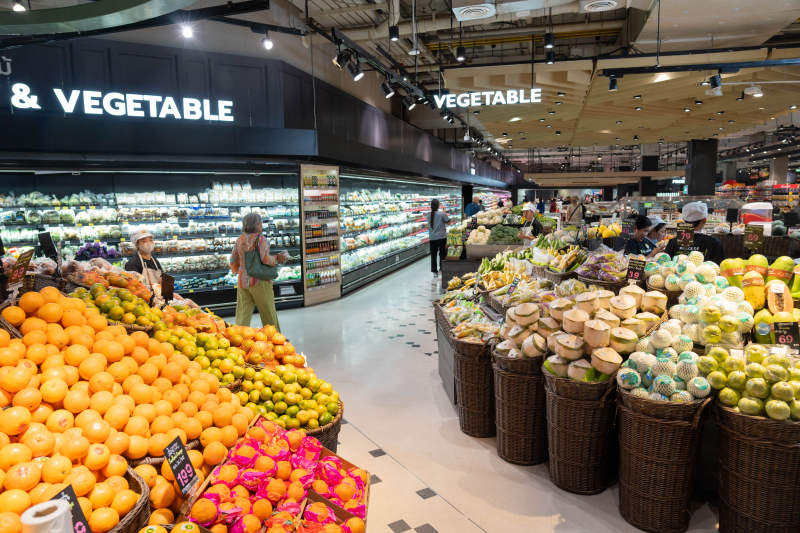
We Are Fresh
Over 2,000 products are sourced directly from local and international farmers grown, using one of the following three key organic approaches, Organic, Hydroponic, and Hygienic. Products offered include, fresh fruits and vegetables, meat products and eggs, sourced from certified farmers, which meets the department of livestock farming standard quality, carefully controlling every step throughout the value chain, free from rd meat accelerators growth hormone and safe from antibiotics, for all fish, pork, chicken, eggs and seafood products (for both freshwater-saltwater) fish, white shrimp and dried seafood products. All products are gauranteed to have cleanliness and safety from toxic chemical residues. In addition, over 200 We are Fresh products are organic.
N&P Organic
Natural and Premium Food Company Limited offers organic products including vegetables, herbs, mushroom, eggs and ready to cook foods, grown in the most optimum climate to ensure the quality. The farming approach also ensure that no harmful chemicals and additive hormones are used, ensuring that products such as eggs are free range, antibiotics free, artificial and other growth Hormone free, chemical free, artificial coloring free and free from the use of bird flu vaccines, resulting in a more natural and healthier, lower in cholesterol and more nutrition, especially vitamin E, Beta carotene and Omega 3.
Royal Project Vegetable
The Royal Project was first implemented by the late his majesty King Bhumibol Adulyadej, the 9th King of Thailand to improve the standard of living of the hill tribes’ communities, to replace opium poppy cultivation with a more sustainable highland agriculture practice. Today, organic vegetable production by the Royal Project is well known throughout Thailand, producing high quality fruits and vegetables products throughout Thailand.
Recycled Raw Materials
BJC Glass using 61% recycled cullet (recycled raw materials) in 2024 saved 171,637 tCO₂e compared to virgin materials, supporting a lower-carbon, resource-efficient, and circular packaging system.
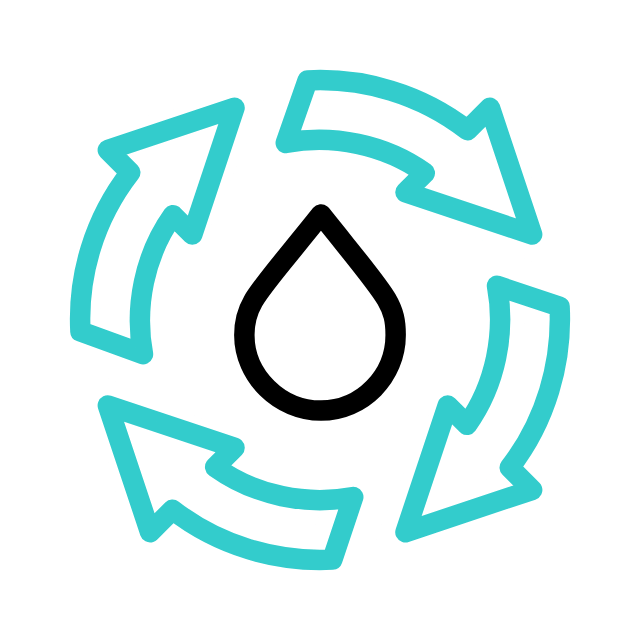

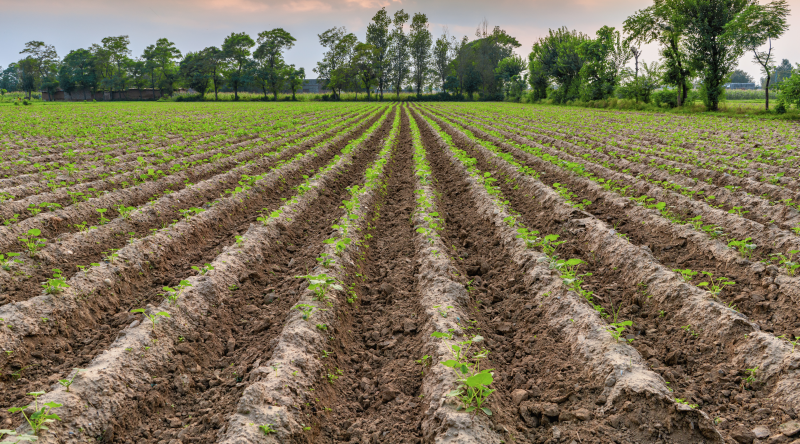
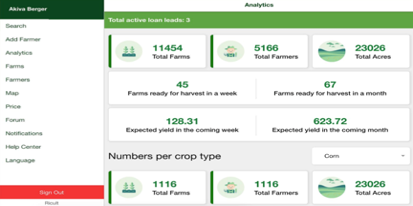

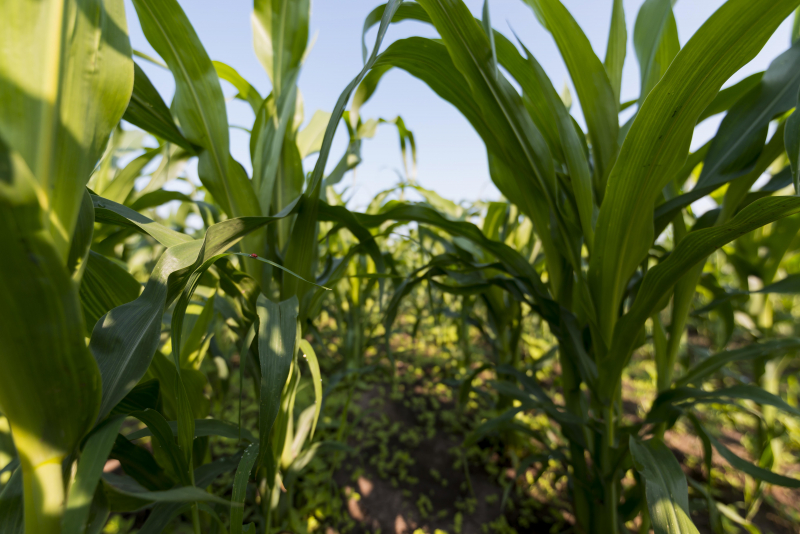
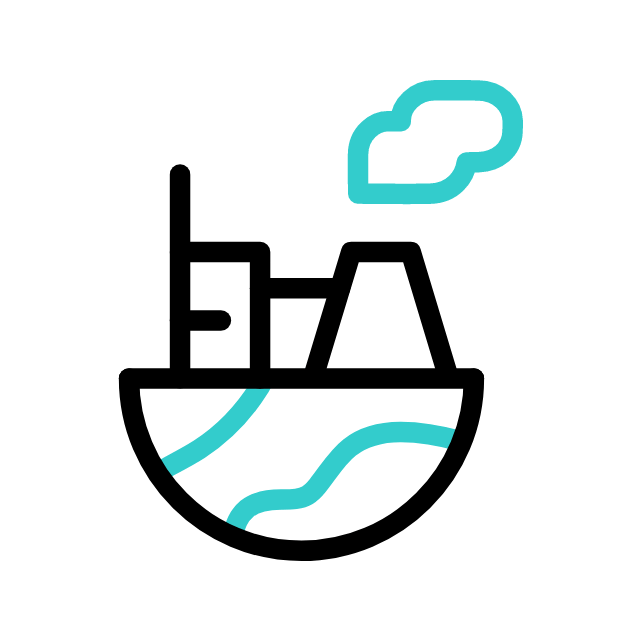

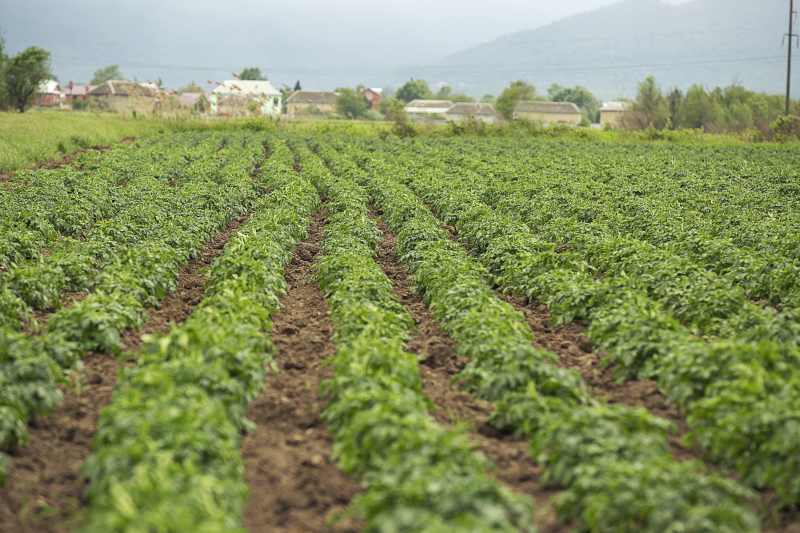
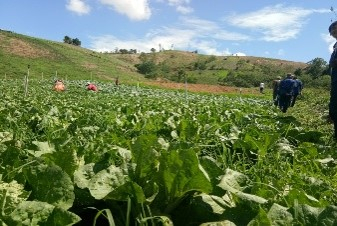


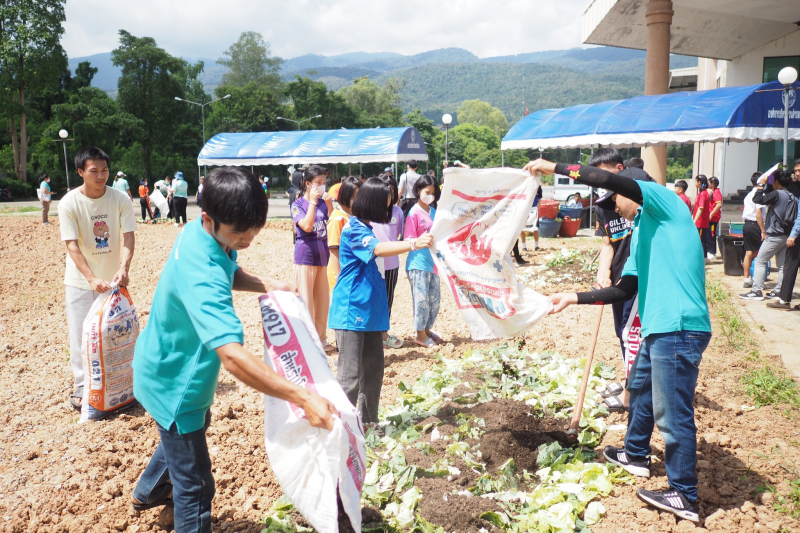
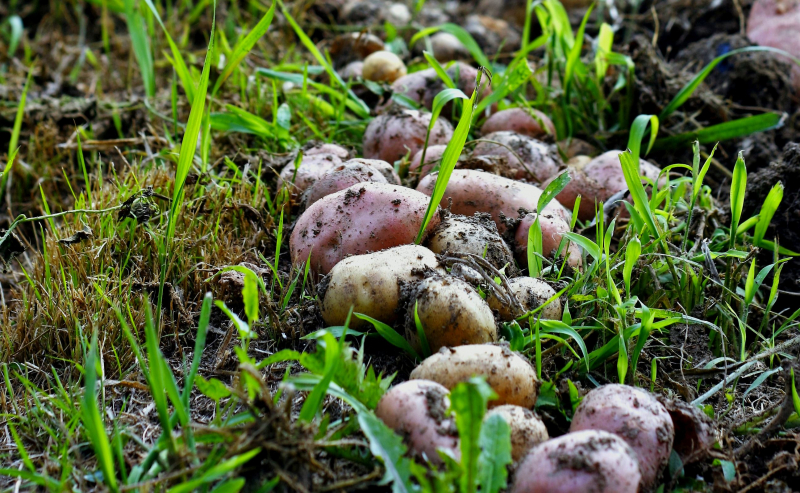
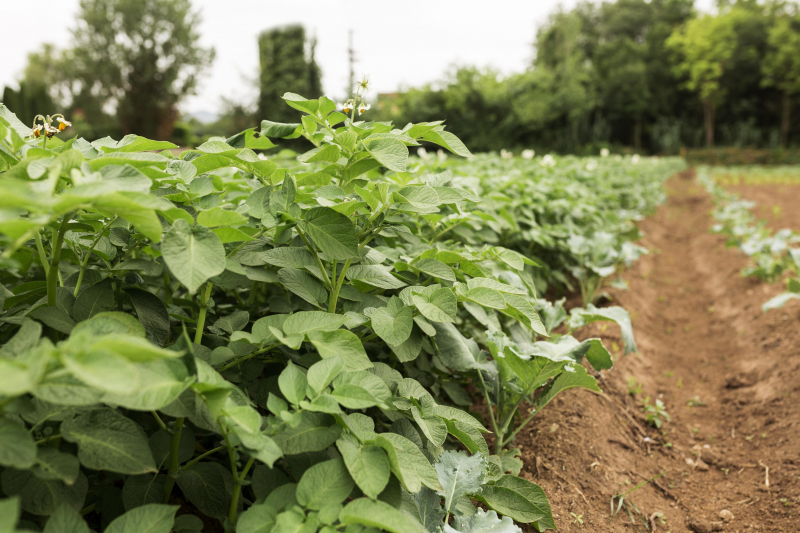



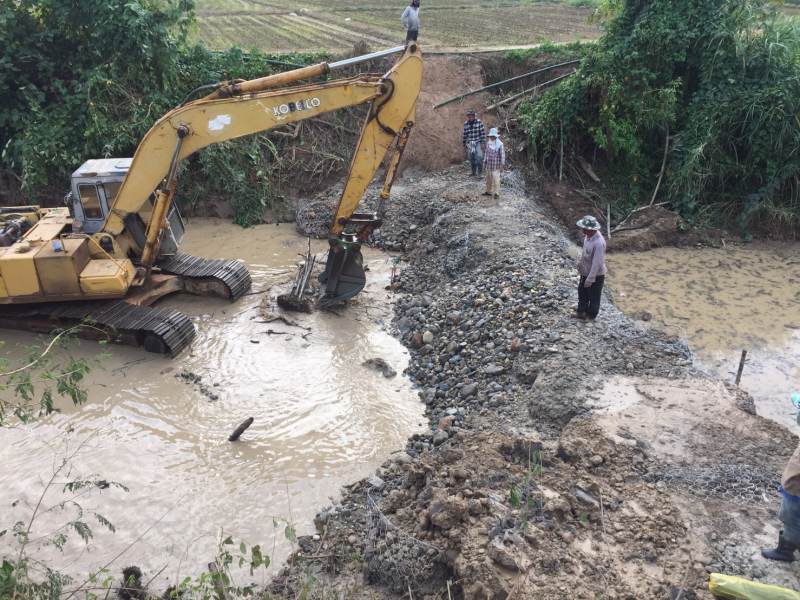
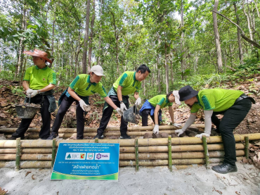

.gif)

